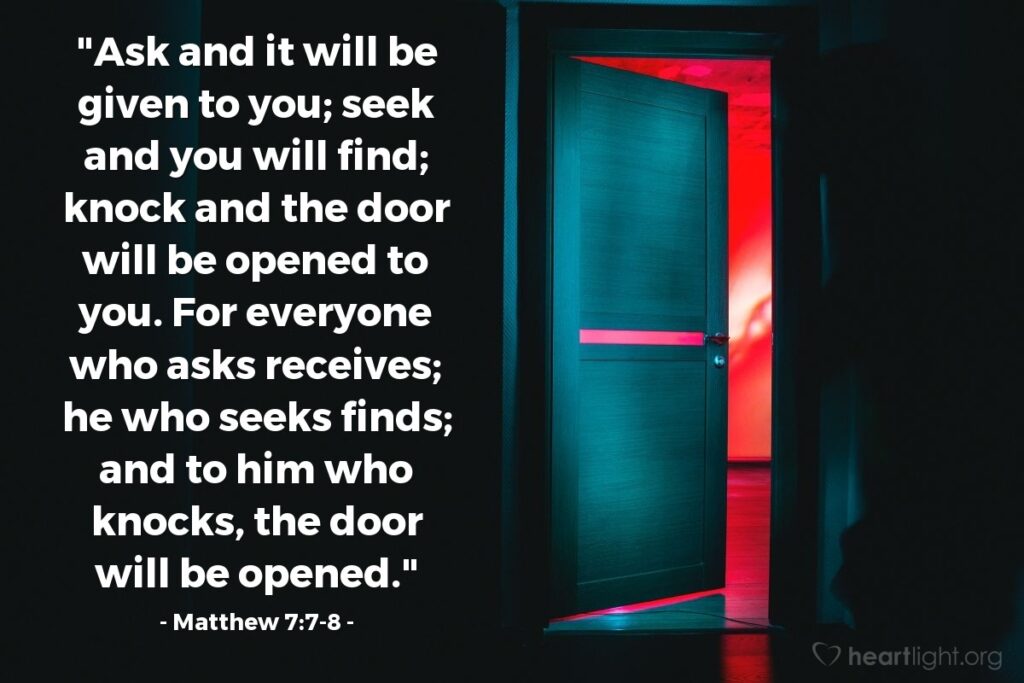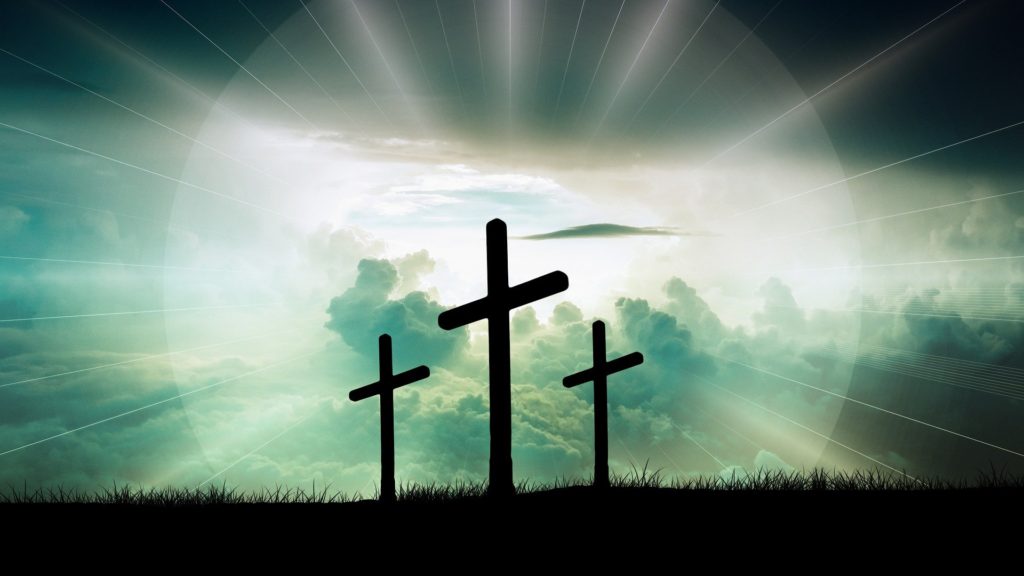
There’s something truly magical about springtime in the Pacific Northwest. It’s a time when nature comes alive—the trees budding, the daffodils, and spring flowers proudly displaying their beauty. For me, it’s more than just a season; it’s a profound reminder of the incredible gift our Savior bestowed upon us.
As I reflect on this past week, my mind drifts to memories of Passion Week. As a child, I eagerly anticipated the excitment of Palm Sunday, the reflection of Good Friday, and the jubilation of Easter morning, starting with our church’s sunrise service amidst the backdrop of nature’s awakening in the little garden behind our church. I can still vividly recall sitting in the pew, listening intently as our pastor recounted the timeless passages of Scripture, each word resonating deep within my soul.
Of all the services, Good Friday and Easter morning held a special place in my heart. Even before I fully grasped the significance of Christ’s sacrifice, there was something about those gatherings that stirred my spirit year after year.

 Following the sunrise service, our congregation would come together for a simple yet meaningful breakfast, complete with boiled eggs and my mother’s heavenly hot cross buns—a tradition she lovingly upheld each year. The aroma of those buns still lingers in my memory, a testament to her culinary gifts and devotion to our church community.
Following the sunrise service, our congregation would come together for a simple yet meaningful breakfast, complete with boiled eggs and my mother’s heavenly hot cross buns—a tradition she lovingly upheld each year. The aroma of those buns still lingers in my memory, a testament to her culinary gifts and devotion to our church community.  Saturdays were spent preparing the sanctuary and adorning it with Easter lilies, a labor of love in anticipation of the joyous day to come.
Saturdays were spent preparing the sanctuary and adorning it with Easter lilies, a labor of love in anticipation of the joyous day to come.
The hymns we sang during those services remain etched in my mind. On Good Friday, “Were You There When They Crucified My Lord” echoed through the sanctuary, its haunting melody leaving a lasting impression on my young heart. And on Easter Sunday, as we celebrated the Resurrection, we joyfully sang “Christ the Lord Is Risen Today,” “Up From the Grave He Arose,” and “He Lives,” their triumphant lyrics echoing within me.
Years passed, and life took its course, but the memories of those cherished services remained etched in my heart. It wasn’t until I met my future husband during my college years that the true significance of Easter became clear to me. Mel’s simple question—”Do you know Jesus Christ as your personal Savior?”—ignited a spiritual awakening within me, forever changing the trajectory of my life.
Today, as I journey through another Passion Week, I am reminded anew of the depth of my Savior’s love. While I may have missed attending Good Friday and Sunrise services in recent years, I am filled with anticipation at the prospect of experiencing the solemn beauty of a Service of Tenebrae on Good Friday—a new tradition in my newfound church community.
As I eagerly await this year’s observance, I am filled with gratitude for the opportunity to participate in these sacred services, each one drawing me closer to the heart of the One who willingly gave His life so that we may experience eternal life. And who knows? Perhaps next year, I’ll once again find myself basking in the glow of a sunrise service, celebrating the dawn of a new day filled with hope and redemption. 
Resurrection Sunday! Hallelujah, the tomb is empty! Praise His Holy and Glorious Name!
As we rejoice in the miracle of Christ’s Resurrection, let us not confine our celebration to one day of the year. Let us instead embrace the reality of His victory over sin and death each and every day of our lives. For His sacrifice was not limited to a single moment in time but continues to reverberate throughout eternity.
I encourage you, dear reader, to celebrate His Resurrection daily—not merely on Resurrection Sunday.  For in His death and Resurrection, He paid a debt we could never repay, He broke the chains of sin that bound us, He restored what was lost, and He continues to transform us each day. The same power that raised Jesus Christ from the grave now resides within each one of His followers, empowering us to overcome the challenges we face and to live victoriously.
For in His death and Resurrection, He paid a debt we could never repay, He broke the chains of sin that bound us, He restored what was lost, and He continues to transform us each day. The same power that raised Jesus Christ from the grave now resides within each one of His followers, empowering us to overcome the challenges we face and to live victoriously.
Let us hold fast to the truth of 1 John 4:4, which declares, “Greater is He who is in me than he who is in the world.”  With this assurance, may we live boldly, confidently, and joyfully, knowing that we serve a risen Savior whose love knows no bounds.
With this assurance, may we live boldly, confidently, and joyfully, knowing that we serve a risen Savior whose love knows no bounds.
Hallelujah!
The Lord is risen indeed!


 Exploring the Depths of Prayer: The Power of Persistence
Exploring the Depths of Prayer: The Power of Persistence

 As illustrated in Luke 15:8-10, the power of asking, seeking, and persistent knocking is affirmed: “I tell you, even though he will not get up and give him anything because he is his friend, yet because of his persistence he will get up and give him as much as he needs. So I say to you, ask, and it will be given to you; seek, and you will find; knock, and it will be opened to you. For everyone who asks, receives; and he who seeks, finds; and to him who knocks, it will be opened.”
As illustrated in Luke 15:8-10, the power of asking, seeking, and persistent knocking is affirmed: “I tell you, even though he will not get up and give him anything because he is his friend, yet because of his persistence he will get up and give him as much as he needs. So I say to you, ask, and it will be given to you; seek, and you will find; knock, and it will be opened to you. For everyone who asks, receives; and he who seeks, finds; and to him who knocks, it will be opened.” Often, the person praying needs to change before they can see a change in what they are praying for. Just hoping that the situation will get better without any personal change is not effective.
Often, the person praying needs to change before they can see a change in what they are praying for. Just hoping that the situation will get better without any personal change is not effective. Instead, when we pray, we should ask ourselves questions like, “Lord, where do I need to change? Is there any sin in my life that I haven’t dealt with? Are there selfish desires I need to get rid of? Is there a lesson of faith I need to learn? Or is there something I need to give up?”
Instead, when we pray, we should ask ourselves questions like, “Lord, where do I need to change? Is there any sin in my life that I haven’t dealt with? Are there selfish desires I need to get rid of? Is there a lesson of faith I need to learn? Or is there something I need to give up?” Having faith in the power of prayer establishes a connection between the individual and God, cultivating a sense of trust and reliance on a higher purpose. This trust is fundamental to the belief that prayers are not only acknowledged but also capable of bringing about positive change.
Having faith in the power of prayer establishes a connection between the individual and God, cultivating a sense of trust and reliance on a higher purpose. This trust is fundamental to the belief that prayers are not only acknowledged but also capable of bringing about positive change.
 Similarly, John 15:7 emphasizes the importance of abiding in Christ and letting His words abide in us, which leads to the fulfillment of our prayers.
Similarly, John 15:7 emphasizes the importance of abiding in Christ and letting His words abide in us, which leads to the fulfillment of our prayers. It requires aligning our desires with God’s will and living in accordance with His commandments, ensuring that our prayers are heard and answered by Him.
It requires aligning our desires with God’s will and living in accordance with His commandments, ensuring that our prayers are heard and answered by Him.
 When you engage in prayer, envision it as opening a window through which God’s power flows. Your prayers serve as a conduit for seeking His guidance, love, and assistance for others. It’s akin to extending an invitation for God to intervene in their lives. Your words spoken in prayer have the potential to generate a divine energy that can influence circumstances and individuals, enabling God’s power to bring peace, restoration, and transformative change. Thus, your prayers establish a vital connection between yourself and God, through which His power can reach and profoundly affect the lives of those for whom you pray.
When you engage in prayer, envision it as opening a window through which God’s power flows. Your prayers serve as a conduit for seeking His guidance, love, and assistance for others. It’s akin to extending an invitation for God to intervene in their lives. Your words spoken in prayer have the potential to generate a divine energy that can influence circumstances and individuals, enabling God’s power to bring peace, restoration, and transformative change. Thus, your prayers establish a vital connection between yourself and God, through which His power can reach and profoundly affect the lives of those for whom you pray. Step into the next chapter of our exploration in “Weaving Prayer and Faith into the Fabric of Your Life”. Embark on a faith journey that teaches us the art of navigating through trust, patience, thankfulness and belief.
Step into the next chapter of our exploration in “Weaving Prayer and Faith into the Fabric of Your Life”. Embark on a faith journey that teaches us the art of navigating through trust, patience, thankfulness and belief.


 Pray with Empty Hands: Commence your prayers even when tangible outcomes are yet to manifest. The journey begins with faith preceding evidence.
Pray with Empty Hands: Commence your prayers even when tangible outcomes are yet to manifest. The journey begins with faith preceding evidence. So, in simple terms, faith is like a two-sided coin, and when you pray, believe, and thank God even before you see the results.
So, in simple terms, faith is like a two-sided coin, and when you pray, believe, and thank God even before you see the results.


 In Scripture, faith is characterized by a profound belief accompanied by trust and a sacred passion. It also imparts the qualities of reliability and steadfastness to the individual who possesses it.
In Scripture, faith is characterized by a profound belief accompanied by trust and a sacred passion. It also imparts the qualities of reliability and steadfastness to the individual who possesses it.

 It is an unconditional reliance on God’s character.
It is an unconditional reliance on God’s character.
 Genuine faith is sticking to your beliefs, no matter what happens, and it provides a solid foundation for your spiritual journey. It is a powerful force that helps you understand, endure, and trust, shaping what you believe in.
Genuine faith is sticking to your beliefs, no matter what happens, and it provides a solid foundation for your spiritual journey. It is a powerful force that helps you understand, endure, and trust, shaping what you believe in. faith time to work! My prayer has to be based upon my faith in God, and that faith is based upon my confidence in Him and who He says He is.
faith time to work! My prayer has to be based upon my faith in God, and that faith is based upon my confidence in Him and who He says He is.


 offering comfort in uncertainty and hope in the face of adversity.
offering comfort in uncertainty and hope in the face of adversity.
 on the moments that stand as testaments to faith—the highs and lows. Ponder those instances when faith was not just a concept but a tangible presence guiding you, shaping your decisions, offering comfort in times of distress, and weaving a tapestry of meaning into the seemingly random events of your life.
on the moments that stand as testaments to faith—the highs and lows. Ponder those instances when faith was not just a concept but a tangible presence guiding you, shaping your decisions, offering comfort in times of distress, and weaving a tapestry of meaning into the seemingly random events of your life. Your journey is a story still in the making,
Your journey is a story still in the making, that binds it all together.
that binds it all together.

 seek find, and those who persistently knock will witness doors opening before them. These verses serve as a compass, directing us toward the path of fulfillment through intentional prayer.
seek find, and those who persistently knock will witness doors opening before them. These verses serve as a compass, directing us toward the path of fulfillment through intentional prayer.
 Let’s turn the spotlight inward. Ask yourself the hard questions. Is there any wickedness in my heart—a sin that lingers, a conscious choice to hold on despite the call for release?
Let’s turn the spotlight inward. Ask yourself the hard questions. Is there any wickedness in my heart—a sin that lingers, a conscious choice to hold on despite the call for release? 

 This acknowledgment sets the stage for redemption and showcases the sincerity of the individual’s faith. The critical element in this narrative is the man’s refusal to accept his sin complacently. Despite his failures, he resists becoming content with a life contrary to his beliefs. This refusal to embrace sin, both in conduct and heart, becomes a pivotal point in the journey toward spiritual growth.
This acknowledgment sets the stage for redemption and showcases the sincerity of the individual’s faith. The critical element in this narrative is the man’s refusal to accept his sin complacently. Despite his failures, he resists becoming content with a life contrary to his beliefs. This refusal to embrace sin, both in conduct and heart, becomes a pivotal point in the journey toward spiritual growth.


 As we navigate this path, be encouraged by the understanding that our struggle is not in vain; it is a testament to the fact that trials may mark our journey, but it is the commitment to resist sin and pursue righteousness that defines our character.
As we navigate this path, be encouraged by the understanding that our struggle is not in vain; it is a testament to the fact that trials may mark our journey, but it is the commitment to resist sin and pursue righteousness that defines our character.
 For in the thorough dealing of the heart, true freedom is found.
For in the thorough dealing of the heart, true freedom is found. Yet, unspoken doubts can create barriers between you and your God. It’s like trying to converse through a foggy window. It’s futile to ask for grace while holding onto the very sins we wish to be free from.
Yet, unspoken doubts can create barriers between you and your God. It’s like trying to converse through a foggy window. It’s futile to ask for grace while holding onto the very sins we wish to be free from. propelling you toward a deeper understanding of the Creator’s boundless love. The struggle is part of the journey, and in overcoming it, you find a renewed sense of purpose and a faith that stands resilient against the winds of uncertainty. May our hearts be cleansed, and may our spirits soar in the light of forgiveness and grace. May this journey lead us to a deeper connection with God and a life marked by compassion, humility, and genuine repentance.
propelling you toward a deeper understanding of the Creator’s boundless love. The struggle is part of the journey, and in overcoming it, you find a renewed sense of purpose and a faith that stands resilient against the winds of uncertainty. May our hearts be cleansed, and may our spirits soar in the light of forgiveness and grace. May this journey lead us to a deeper connection with God and a life marked by compassion, humility, and genuine repentance.

 So, let’s not approach prayer with doubt but with the confidence that our Father in heaven is always listening, ready to respond to the cries of our hearts.
So, let’s not approach prayer with doubt but with the confidence that our Father in heaven is always listening, ready to respond to the cries of our hearts. to ask,
to ask,
 If you keep a prayer journal, go back and examine it. How many of your requests have been met? Are your prayers vague and general, or are they specific and heartfelt?
If you keep a prayer journal, go back and examine it. How many of your requests have been met? Are your prayers vague and general, or are they specific and heartfelt?
 What if the key to unlocking those miracles lies not in vague, general requests but in the unwavering power of specific, honest, and unreserved prayer?
What if the key to unlocking those miracles lies not in vague, general requests but in the unwavering power of specific, honest, and unreserved prayer?






 It’s crucial to understand that the night season is not a punishment but a divine appointment. It is a season ordained by God for your spiritual growth and refinement. Just as gold is purified in the fire, so too is your faith refined in the crucible of the night season. In the Bible, we see examples of individuals like Job, David, and even Jesus Himself experiencing their own dark nights of the soul.
It’s crucial to understand that the night season is not a punishment but a divine appointment. It is a season ordained by God for your spiritual growth and refinement. Just as gold is purified in the fire, so too is your faith refined in the crucible of the night season. In the Bible, we see examples of individuals like Job, David, and even Jesus Himself experiencing their own dark nights of the soul.
 In the midst of my struggles, I turned to 1 Corinthians 13:4-8, which became my guiding light. Those verses spoke of love’s patience, kindness, and endurance. They reminded me that love was not just a feeling but a choice, an action, and a commitment.
In the midst of my struggles, I turned to 1 Corinthians 13:4-8, which became my guiding light. Those verses spoke of love’s patience, kindness, and endurance. They reminded me that love was not just a feeling but a choice, an action, and a commitment.
 My mind was filled with thoughts of God’s goodness, and I meditated on His word, finding comfort and wisdom in the scriptures. And with all my strength, I served others selflessly, realizing that in helping those in need, I was expressing my love for God.
My mind was filled with thoughts of God’s goodness, and I meditated on His word, finding comfort and wisdom in the scriptures. And with all my strength, I served others selflessly, realizing that in helping those in need, I was expressing my love for God. And I realized that this love, as described in 1 Corinthians 13, was the source of my strength, enabling me to weather any storm and love both God and Mel more deeply than ever before.
And I realized that this love, as described in 1 Corinthians 13, was the source of my strength, enabling me to weather any storm and love both God and Mel more deeply than ever before.
 In the book of Job, we find a story that is both timeless and deeply meaningful, one that metaphorically represents the night season or a period of darkness that many of us may experience in our lives. Through Job’s story, we can see that suffering can lead to a transformative encounter with God, strengthening our faith and trust and, ultimately, allowing us to experience God profoundly and personally.
In the book of Job, we find a story that is both timeless and deeply meaningful, one that metaphorically represents the night season or a period of darkness that many of us may experience in our lives. Through Job’s story, we can see that suffering can lead to a transformative encounter with God, strengthening our faith and trust and, ultimately, allowing us to experience God profoundly and personally. It was as if I was wandering in the darkest of nights, searching for a glimmer of light.
It was as if I was wandering in the darkest of nights, searching for a glimmer of light. It was as if a veil had been lifted, and I could see God with new eyes that perceived His love, grace, and unwavering presence in my life. My suffering, much like Job’s, led to significant spiritual growth. It deepened my faith, strengthened my trust in God, and allowed me to transition from merely knowing God to experiencing Him intimately.
It was as if a veil had been lifted, and I could see God with new eyes that perceived His love, grace, and unwavering presence in my life. My suffering, much like Job’s, led to significant spiritual growth. It deepened my faith, strengthened my trust in God, and allowed me to transition from merely knowing God to experiencing Him intimately.




 Life is full of unexpected twists and turns; sometimes, things don’t go as planned. Sometimes, we adapt to our circumstances and adjust to accommodate our limitations. But in doing so, we can shut down the possibility of God’s blessings and provision in our lives. We must remember that we serve a God who is a way-maker and can make a way where there seems to be no way.
Life is full of unexpected twists and turns; sometimes, things don’t go as planned. Sometimes, we adapt to our circumstances and adjust to accommodate our limitations. But in doing so, we can shut down the possibility of God’s blessings and provision in our lives. We must remember that we serve a God who is a way-maker and can make a way where there seems to be no way.




 Yesterday my son, David, and I had planned to clear the way to a fallen tree in our back acreage, preparing for next fall’s wood supply, but instead, we changed our plans due to the falling snow we have been experiencing all week.
Yesterday my son, David, and I had planned to clear the way to a fallen tree in our back acreage, preparing for next fall’s wood supply, but instead, we changed our plans due to the falling snow we have been experiencing all week. Last week beautiful Pacific Northwest spring weather –
Last week beautiful Pacific Northwest spring weather –




 The Avalanche Lilly with six white petals represents the day man was created with a center crown of gold, a promise from our risen LORD to them that love Him. “Jesus was God and man in one person, that God and man might be happy together again.”—-George Whitfield
The Avalanche Lilly with six white petals represents the day man was created with a center crown of gold, a promise from our risen LORD to them that love Him. “Jesus was God and man in one person, that God and man might be happy together again.”—-George Whitfield The Avalanche Lilly reminds me of being closest to the sun, which will cast a shadow no matter which cloud you are in.
The Avalanche Lilly reminds me of being closest to the sun, which will cast a shadow no matter which cloud you are in.


 Seemingly overnight, I see this happening year after year with my forsythia bush from my kitchen window. And so beautiful when it is full of its rich, yellow blossoms screaming –
Seemingly overnight, I see this happening year after year with my forsythia bush from my kitchen window. And so beautiful when it is full of its rich, yellow blossoms screaming – 



 I am often guilty of bringing the difficulties of yesterday into the newness of today, forgetting that God makes all things new – including today!
I am often guilty of bringing the difficulties of yesterday into the newness of today, forgetting that God makes all things new – including today!
